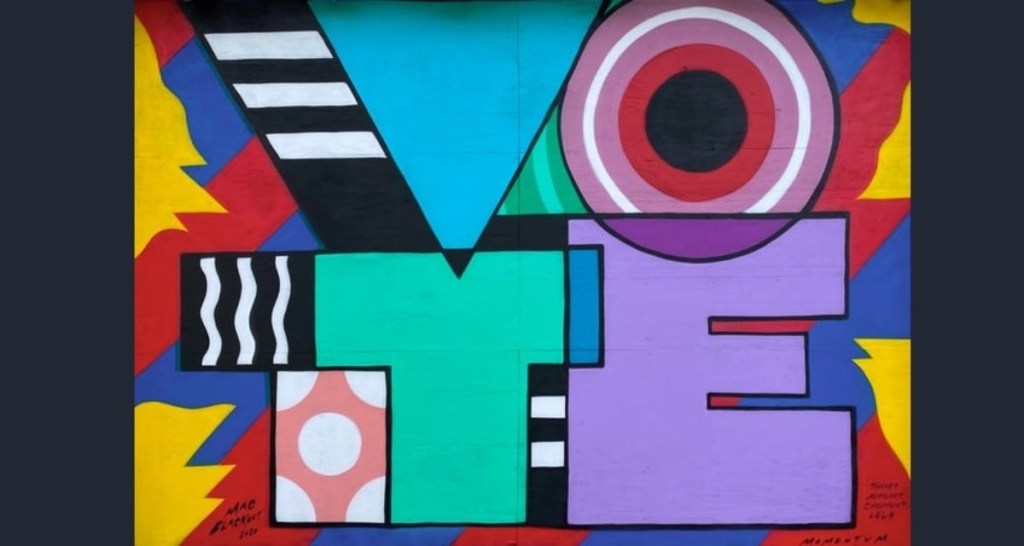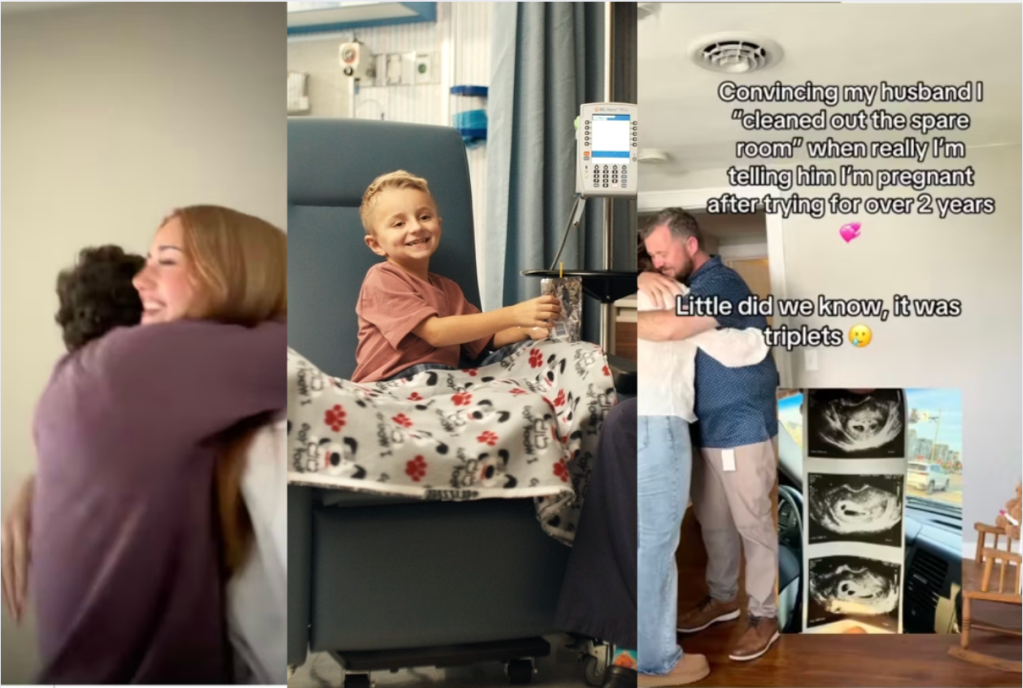Anne Hebert, a marketing writer living in Austin, TX, jokes that her closest friends think that her hobby is “low-key harassment for social good”. She authors a website devoted entirely to People Doing Good Things. She’s hosted a yearly canned food drive with up to 150 people stopping by to donate, resulting in hundreds of pounds of donations to take to the food bank for the past decade.
“I try to share info in a positive way that gives people hope and makes them aware of solutions or things they can do to try to make the world a little better,” she said.
For now, she’s encouraging people through a barrage of persistent, informative, and entertaining emails with one goal in mind: getting people to VOTE. The thing about emailing people and talking about politics, according to Hebert, is to catch their attention—which is how lice got involved.
“When my kids were in elementary school, I was class parent for a year, which meant I had to send the emails to the other parents. As I’ve learned over the years, a good intro will trick your audience into reading the rest of the email. In fact, another parent told me that my emails always stood out, especially the one that started: ‘We need volunteers for the Valentine’s Party…oh, and LICE.’”
Hebert isn’t working with a specific organization. She is simply trying to motivate others to find ways to plug in to help get out the vote.

The emails, which are entertaining and informative, break down basic ideas for exactly how to help educate and motivate other people to exercise their right to vote. She offers a multitude of suggestions and ideas based on level of difficulty, making it easy even for the most apathetic members of society. Her quirky and smart communication strategy caught the attention of Notley Tide, a non-partisan initiative launched in June of this year to encourage others to tap into their networks to advance racial justice and voting rights.
The members of Notley Tide receive monthly call-to-action emails, and Hebert’s helpful resources have been shared in them, according to Minh Vu, who is leading the effort.
“A rising tide lifts all boats…in this case, our ‘tide’ is made up of our community of monthly givers and doers committed to building a more racially just future,” said Vu. “The roots of the systemic and institutional racism that has been pervasive throughout our country’s history continued to expose itself at the expense of Black lives with the murder of George Floyd, Breonna Taylor, Ahmaud Arbery, and countless others.”
Hebert wasn’t always this passionate about the democratic process; she began a couple of years ago by writing emails to a handful of people, encouraging them to educate themselves and take action to spread awareness of the importance of voting in every single election.
“Many people have never phone banked or knocked on doors,” Hebert said. “My goal is to give people an entry point at which they are comfortable. Does anyone like to bake? Can anyone stuff envelopes?”

Research shows that more than a third of eligible voters are Gen Z or millennials, and 83% of people ages 18 to 29 believe they have the power to change the country and the world. However, voter registration numbers are down as a result of the COVID-19 pandemic, and with so many issues on the line, getting the young voters to make their voices heard is imperative. This is why Procter & Gamble has partnered with Global Citizen and HeadCount for #JustVote, a new initiative to register as many new voters as possible.
Hebert is concerned about missed opportunities for high schoolers and college students to register to vote, due to the impact of Covid-19. Normally those efforts are heavily promoted on campuses, and pushed forward by school administrators. With many schools operating abnormally due to the pandemic, there’s a huge need to get kids who recently turned 18 or who are of age, but have never voted before, registered to vote and informed on where their voting locations are.
“I’ve organized with my neighbors to work to increase voter registration and turnout in our precinct and now we are helping with the surrounding precincts…the last two weekends, we got volunteers to put voter registration forms on thousands and thousands of student apartment complexes.”

Voting is one way you can make a difference. Another is getting more people to the polls in November. So let’s go do some social good.
Turn your everyday actions into acts of good by P&G Good Everyday, a rewards program for people who want to make a positive impact in the world.

































